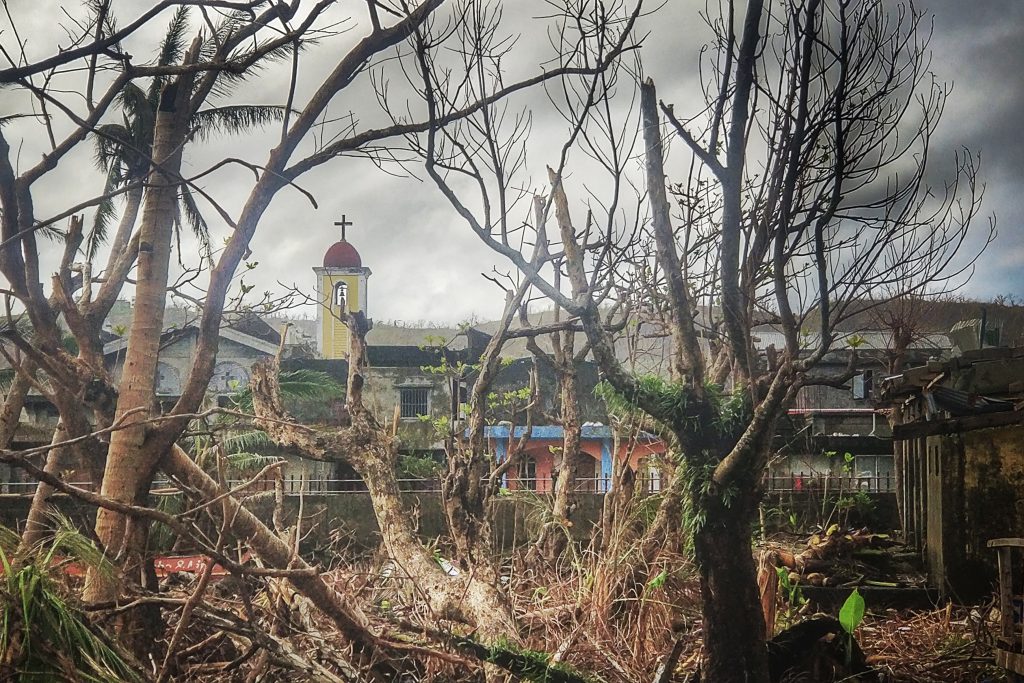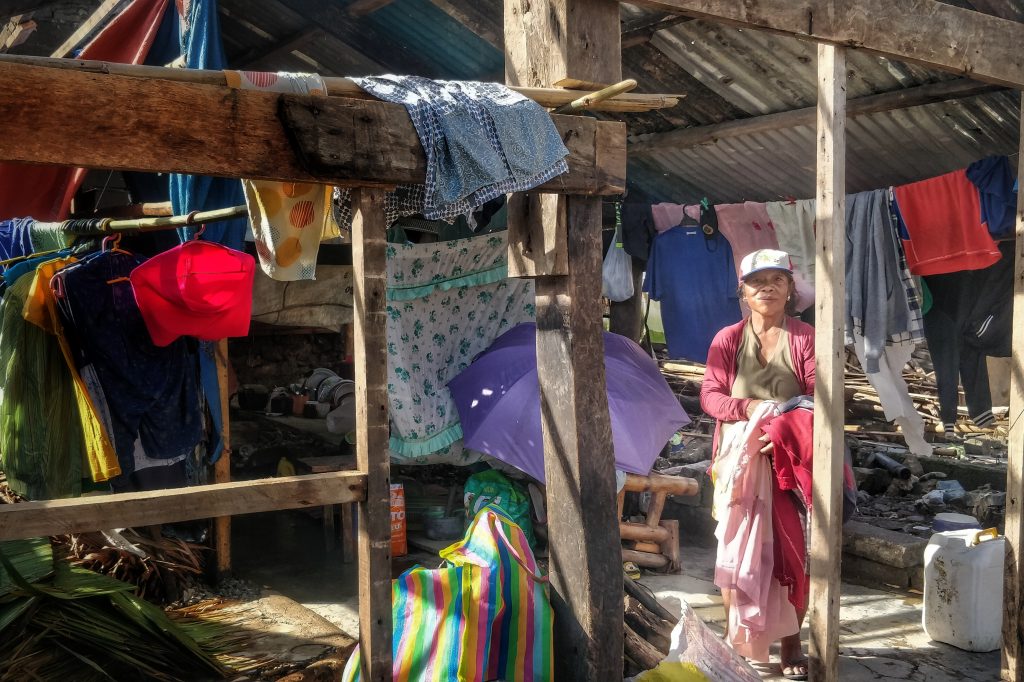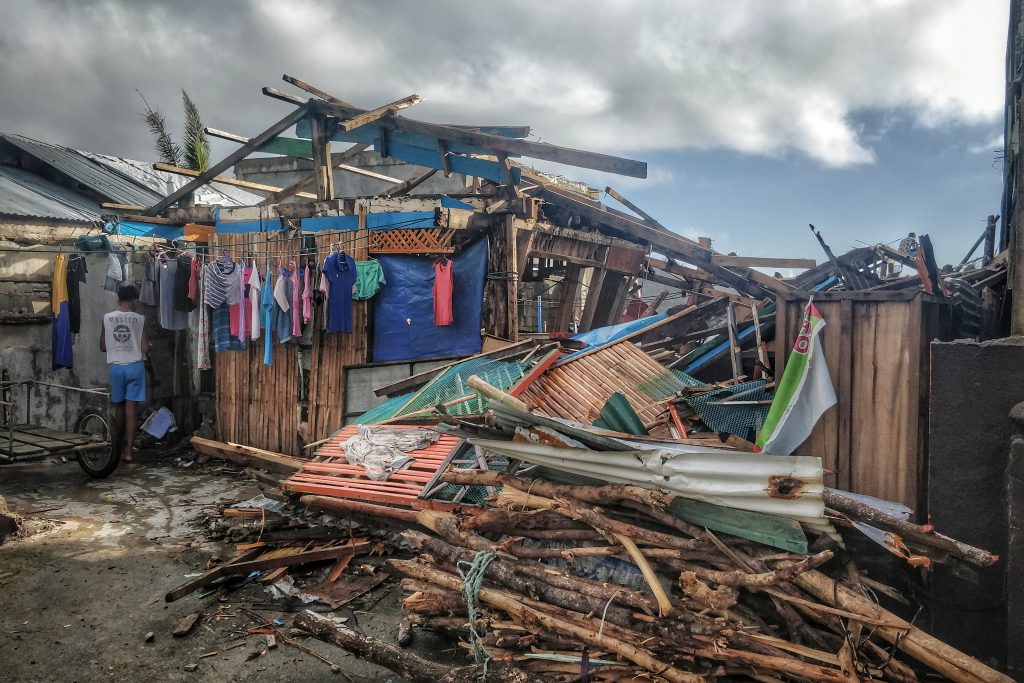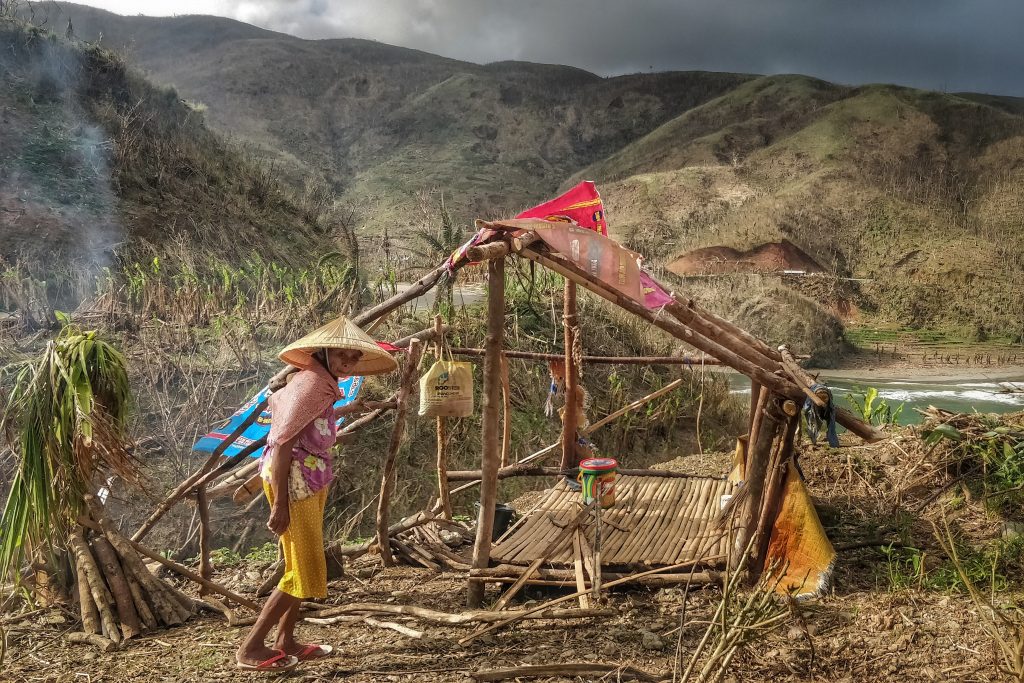
Leni Tatad is hungry.
It has been two weeks since super typhoon “Rolly” (international name: Goni) lashed the island province of Catanduanes.
Leni, her five children, and their neighbors in the village of Agban, Baras town, have yet to eat a decent meal.
“We need food. We’re hungry,” Leni she says, while resting inside a makeshift shelter in the middle of the village.
It is already lunch time, and the Filipino tradition of offering food — even when one has none — is not lost on Leni and her friends.
But at the moment, all they can offer, and in jest, is “adobong pako” (cooked iron nails). They have no food.
All the villagers have are iron nails donated by missionaries who arrived in their village the day befofe.
“Adobo” is a popular Filipino dish and a cooking process that involves meat, seafood, or vegetables marinated in vinegar, soy sauce, garlic, bay leaves, and black peppercorns, which is browned in oil, and simmered in the marinade.
Agban is a coastal village known for its pristine waters and luscious greens. It is home to about a thousand people.
On November 1, as Filipino Catholics observed All Saints’ Day, super typhoon “Rolly” pummelled the province of Catanduanes, including the village of Agban.

With intense rainfall and sustained winds of 225 kilometers per hour, concrete houses were shattered, huts that were made of grass were blown away, roofs were carried off into the sea, leaving residents to seek shelter inside the village’s St. John Paul Parish church.
People have always felt safer inside the church, which, for years, served as their evacuation center when severe storms hit the area.
“Rolly’s” rage, however, sent seawater barreling through the village, breaking a dike, causing water to wash into the village and even into the church.
People wept as water rose from a stream on the side of the church, sweeping into their homes.
“Have you ever experienced typhoons in the provinces?” asks Gabriel Villanueva, the village chief. “Well, they can make you cry.”
Fe Tongo recalls the sound of the wind that “roared like airplane engines.” Her family was torn between covering their ears and saving their things.
“My children and I hid under the bed. They cried. I cried too,” she says.
The mountains surrounding the village used to be filled with trees. Now, it’s littered with felled trunks and leafless branches.
Everything is gray and brown, and gloomy.
No one died in Agban when “Rolly” came, but with no electricity and phone signals, residents say it feels like there is nothing out there.
They say they want to ask for help, but they don’t know how.
They are afraid, and the snail-paced government response coupled with the lack of communication to the outside world, make them fear that death by hunger will soon be knock on their doors.

The first sign of help came on November 14.
A group of Redemptorist missionaries, who had to endure a long wait at the port of Tabacco in Albay province, arrived with food and construction supplies.
Still, like Leni, Erwin Soledad, Nestor Balamban, Aimee Balamban, and Reynaldo Catolico say they are also hungry.
In the late afternoon, they huddle on St. Vincent Street to look at their destroyed houses.
“We’re used to these storms, but it does not mean we are not in pain. This is painful for us,” says Aimee.
“We are not strong,” adds Reynaldo. “We’re forced to stand up because we don’t have any choice. How else are we going to survive?”
The devastation is evident not only on the physical situation of the village. It can also be gleaned on the faces of people.
Leni says her heart still beats faster every time she feels a rainfall.
Merly Catinoy, 59, watches the sea as she wonders out loud when to start rebuilding. The only fixture left in her house is the toiled bowl on the concrete floor.
“It felt like we’re being punished by God,” she says. “I’m already tired. They said there’s another storm coming.”

Amid the lack of food, Merly’s neighbors have started to rebuild their lives.
In the morning, one can hear the sound of people hammering on the roofs. Women are seen washing clothes in the river.
In the evening, inside the makeshift shelter, Leni and the other women exchange stories about how “Rolly” left them with practically nothing.
Leni peers through the gaps of the shelter to the felled abaca plants outside, her family’s main source of income.
“We will have to endure hunger for a long period of time,” she murmurs in silence.
Source: Licas Philippines
0 Comments